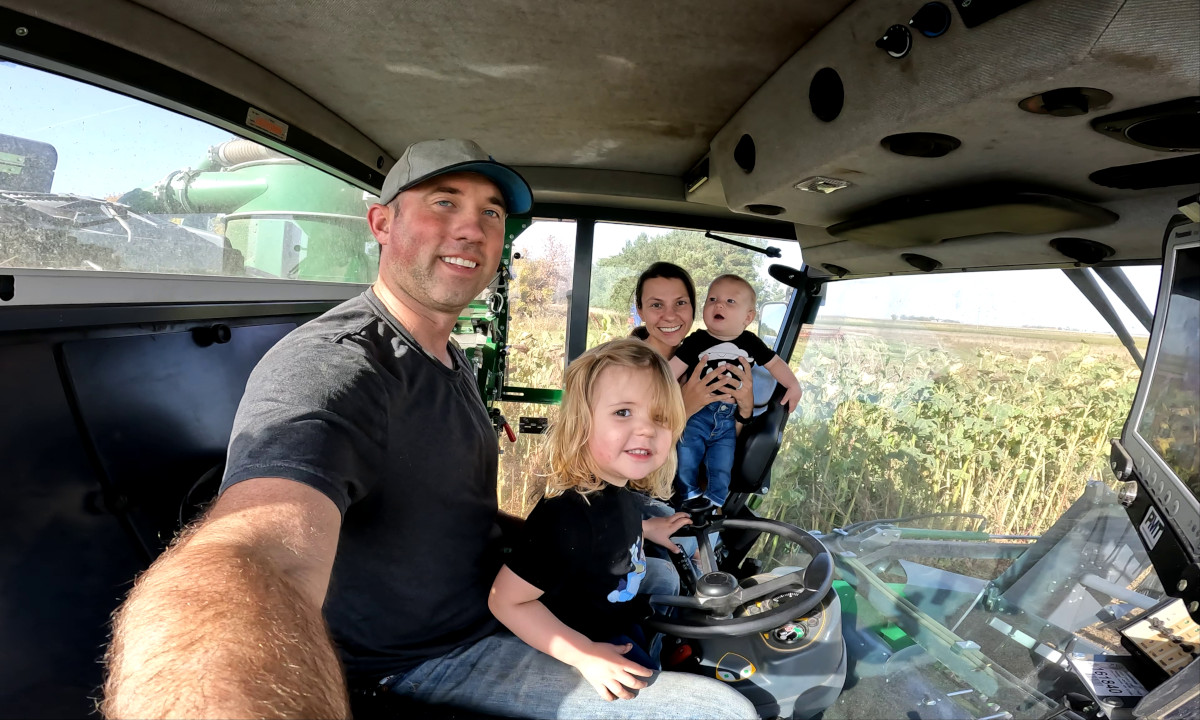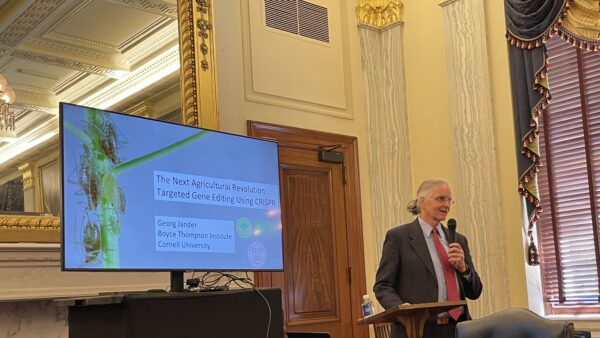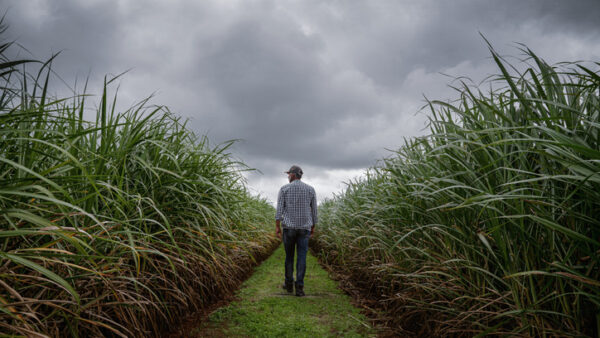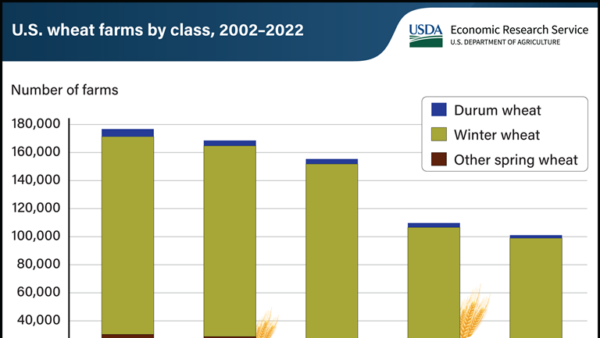Kevin Falk is about to welcome his third child into the world. As a devoted father to two young children aged two and three, the 39-year-old field Corteva Agriscience field modernization scientist based in Oak Bluff, Man., is showing what it means to lead in an age where working parents are more effectively than ever striking a balance between career and family life.
“Parenthood became a pivotal event in life and reshaped my perspective,” says Falk — who along with his wife Ashley (who also works in R&D as a canola breeding agronomist at BASF) — has had to find his rhythm juggling responsibilities between research farms in Carman and Oak Bluff.
Prior to the pandemic and parenthood, the norm for the Falks was being out in the field until 9 p.m. at night, working to get the job done.
“My attitude dictated that you go until the work is completed, and there was an unspoken understanding between my wife and I not to think about how late one might stay out in the field — it’s just how things were,” he says.
“Now, the dynamics have shifted, providing us with the opportunity, or rather the necessity, to plan ahead. Whether we’re seeding plots or collecting data, Ashley and I have had to develop the foresight to manage our schedules effectively.”
Parenthood in the seed industry brought unique challenges, notably the common daycare dilemma faced my many parents.
“Scarcity of spots and drop-off logistics in a rural setting demanded some creative solutions,” Falk says. The couple managed to secure a spot at a small-town daycare between their two field research sites, allowing them to optimize their workdays.
Falk soon found himself dealing with some unplanned exits from the field due to urgent daycare calls.
“Ashley is a master of logistics, and together with our text messages, a shared calendar, and sharing our GPS location on Google Maps, one of us always seems to make it to daycare on time.” Falk explains.
“Additionally, tag-team efforts with my team at Corteva became the norm, where my team would help me, and I would help them in return. To me, that really underscored the evolving landscape of the seed industry that we’ve seen, especially since the pandemic,” he says.
The modern seed industry, like parenthood, demands adaptability, communication, embracing technology and a team willing to join in when things take an unexpected turn, Falk adds.
Approaching the arrival of his third child, Falk reflects on his experiences as a guide for future seed industry leaders.
“Both Ashley and I found ourselves jumping off the seed drill, sprayer, or combine in the middle of a trial due to unexpected daycare calls. It’s a situation I wasn’t familiar or comfortable with, given the meticulous nature of fieldwork,” he adds.
“But the understanding and support from Corteva — and BASF — has been terrific. The research team really bands together when needed; everyone understands the unique challenges that parents in the seed industry face, especially when balancing fieldwork and family life.”
He’s continued to make a name for himself and was recognized in 2020 by Seed World United States as a Next-Gen Leader and has won three Corteva awards for initiating digital field tour solutions during the pandemic, leading development of a new soybean seed treatment, and his grass-roots approach to agriculture outreach. He has twice won the American Seed Trade Association’s Better Seed, Better Life Video Contest and is a National Association of Plant Breeders Borlaug Scholar.
When it comes to his specialty — new technology — Falk is particularly intrigued by the increasing use of spray drones in agriculture and the growing accessibility of drone technology to a wide range of users.
“Drone technology, their sensors, and software is advancing quickly, making them valuable tools for farmers and researchers alike,” Falk adds.
“Future advancements involve how we conduct research including moving from plot-level to plant-level assessments and using spectral analysis that provides a deeper understanding of crop health and performance.”













